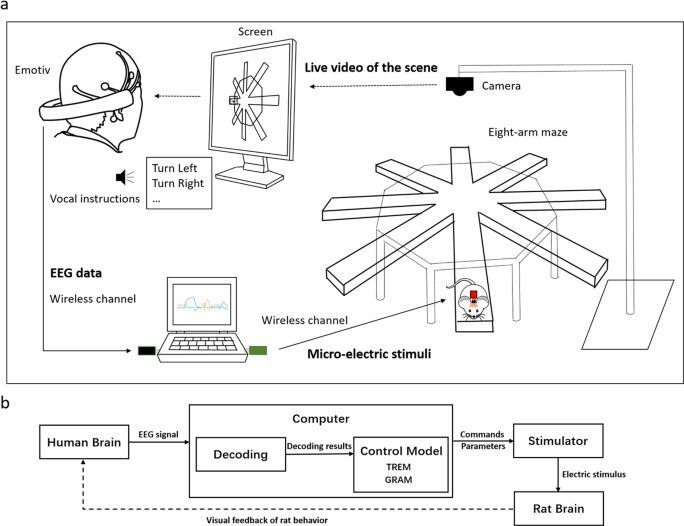Solar powered yacht. 😃
Pierpaolo Lazzarini designs the ‘Pagurus’, a solar-powered amphibious catamaran. via: Myshify.

Solar powered yacht. 😃
Pierpaolo Lazzarini designs the ‘Pagurus’, a solar-powered amphibious catamaran. via: Myshify.
This robotic combat vehicle willl be supporting troops and tanks in the future. 😃
The Type-X Robotic Combat Vehicle acts as an “intelligent wingman” to ground troops. Explore it here.

Important here is at 38:13 where he says not only is his TAME trial paid for but an organization is going to pay a billion dollars per year on aging. He was not allowed to give details but it was going to start this month. I’ll be watching for the news.
Zoom Transcription: https://otter.ai/u/vTb6HEbcyTXBPgVrgRzB3I0CDC8
Dr. Nir Barzilai discusses the TAME Trial and what this group may learn from the successes for advancing progress on biomarkers in particular and on aging in general.
About Nir Barzilai:
Nir Barzilai, MD, is a Professor in the Department of Endocrinology Medicine and the Department of Genetics at the Albert Einstein College of Medicine. He is also the Ingeborg and Ira Leon Rennert Chair of Aging Research at the Albert Einstein College of Medicine.

“The results showed that rat cyborgs could be smoothly and successfully navigated by the human mind to complete a navigation task in a complex maze. Our experiments indicated that the cooperation through transmitting multidimensional information between two brains by computer-assisted BBI is promising.”
(2019)
Brain-machine interfaces (BMIs) provide a promising information channel between the biological brain and external devices and are applied in building brain-to-device control. Prior studies have explored the feasibility of establishing a brain-brain interface (BBI) across various brains via the combination of BMIs. However, using BBI to realize the efficient multidegree control of a living creature, such as a rat, to complete a navigation task in a complex environment has yet to be shown. In this study, we developed a BBI from the human brain to a rat implanted with microelectrodes (i.e., rat cyborg), which integrated electroencephalogram-based motor imagery and brain stimulation to realize human mind control of the rat’s continuous locomotion. Control instructions were transferred from continuous motor imagery decoding results with the proposed control models and were wirelessly sent to the rat cyborg through brain micro-electrical stimulation. The results showed that rat cyborgs could be smoothly and successfully navigated by the human mind to complete a navigation task in a complex maze. Our experiments indicated that the cooperation through transmitting multidimensional information between two brains by computer-assisted BBI is promising.
Exotic and vibrant colors naturally occur in nature because of pigmentations. But nature is also capable of displaying a whole spectrum of eye-catching colors through building nano-scale surface structures. Creatures with intricate physical aesthetics, like a peacock’s feathers or the rich patterns on a butterfly’s wings, achieve this kind of high color resolution due to the small-scale arrays of distinctly shaped objects on their surfaces. This naturally occurring color structure was exploited by a team of researchers from the Technical University of Denmark (DTU). They developed a laser printing technique that doesn’t require ink.
Laser printing without ink
A laser printing technique developed by Anders Kristensen and his DTU team is able to produce high-resolution images without fading away and without using any ink. The team constructed a material called metasurface, which consists of 60 nanometers high columns of plastic. The material’s surface is painted with a coating of germanium, of only 35 nanometers in thickness, then semiconductors are placed on top of the pillars or columns.


Using ocean/sea waves for power. 😃
This is the Eco Wave Power, an innovative and affordable technology that produces clean, renewable energy from ocean waves. (More info: https://youtu.be/BrDua3j1U3M)
Stem cells from fat. 😃
A new type of stem cell—that is, a cell with regenerative abilities—could be closer on the horizon, a new study led by UNSW Sydney shows.
The stem cells (called induced multipotent stem cells, or iMS) can be made from easily accessible human cells—in this case, fat—and reprogrammed to act as stem cells.
The results of the animal study, which created human stem cells and tested their effectiveness in mice, were published online in Science Advances today—and while the results are encouraging, more research and tests are needed before any potential translation to human therapies.